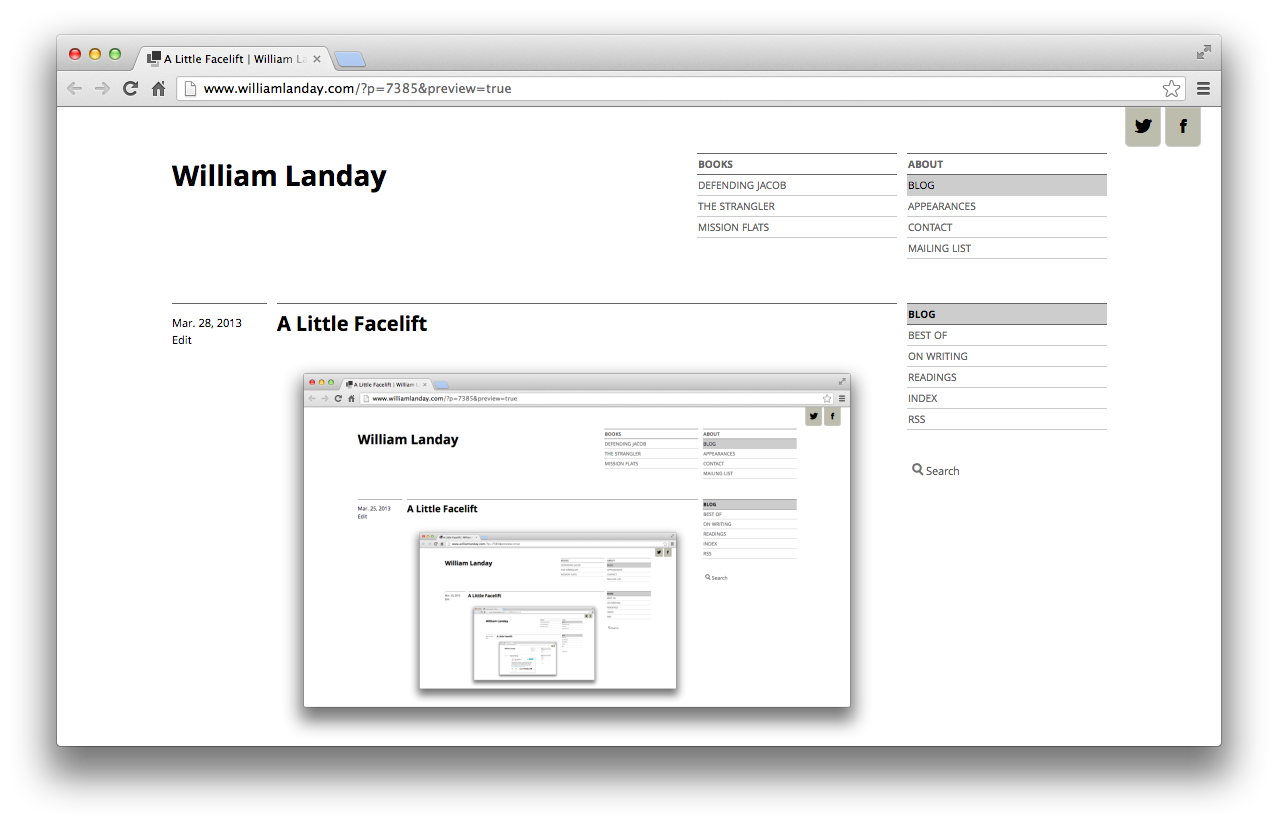The Digital Public Library of America is now open. An incredible resource.
Above: “Close Play at First, Fenway Park, 1934.” Leslie Jones Collection, Boston Public Library Print Department. Via DPLA. (Click image to see full-size.)
Official website of the author
The Digital Public Library of America is now open. An incredible resource.
Above: “Close Play at First, Fenway Park, 1934.” Leslie Jones Collection, Boston Public Library Print Department. Via DPLA. (Click image to see full-size.)

Over the last few weeks this site has been updated. Nothing major — improved typography, simplified layout. But a few changes might affect visitors:
Linda Stone on attention in the age of web overload. This 2006 talk is remarkably prescient. The addled, distracted feeling she described five years ago as “continuous partial attention” feels like a permanent condition now.
In an information-rich world, the wealth of information means a dearth of something else: a scarcity of whatever it is that information consumes. What information consumes is rather obvious: it consumes the attention of its recipients.
Economist Herbert Simon, 1971
I have always wondered why people become so agitated about pirated music or movies but have no problem with lending books. Why is it “stealing” to listen to a song or watch a movie without paying but perfectly okay to borrow my books and read them without paying? We even use tax dollars — my tax dollars! — to support this scandalous book-lending via public libraries.
I understand the technical argument. Borrowing a book does not involve making an unlicensed copy of that book, the thing that copyright specifically forbids. But in the case of books, that is a distinction without a difference. One does not need to own a copy of a book to enjoy the full benefit of it; one only has to borrow it. That is because books most often are read only once then never again, at least not for several years. So possessing the book for a few days or weeks is as good as owning your own copy, unlike a song, which you will likely want to listen to over and over if you like it. Of course, this excludes the value of books as display objects — “books as furniture.” But then, the current frenzy about internet piracy is about illicit digital copies only, and you can’t very well display an MP3 file either.
I am not advocating for piracy and certainly not for closing the public libraries, only for keeping things in perspective. There has never been — and should never be — an ironclad rule of copyright that demands a payment for every single use of an artwork. It violates society’s interest in the free flow of ideas, yes, but, as Neil Gaiman points out, it is also not in the artist’s interest to have his every creation locked up out of sight behind a pay wall.
(Via)
Am I the only one who generally finds the internet a lonely vacuum, a vortex, a votive candle in the men’s room of the noisiest shopping mall on the planet? Am I the only one who feels like I’m wasting way too much time nosing around in nonsense, having what’s left of my brains beaten in by jackhammers, and trying to “make friends” when I should be doing a better job of actually being friends? I don’t think so.
Brad Zellar, Utne Reader (via)
Sysomos, a maker of social media analysis tools, looked at 1.2 billion tweets over a two-month period to analyze what happens after we publish our tweets to Twitter. A few highlights: